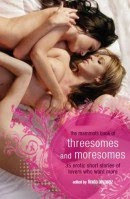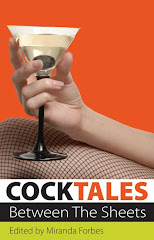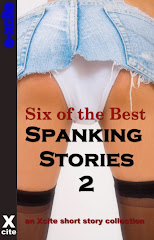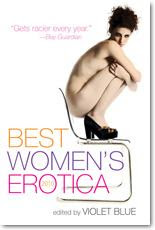I recently had the pleasure of critting my friend, Helen Callaghan’s exciting new time travel novel, Sleepwalker. Though, I have to admit, I had so much fun reading it, I had to remind myself that I was supposed to be ‘being critical.’ Later, as we discussed the book, she surprised me by saying how relieved she was that I had liked the love scenes. She had been concerned that perhaps they didn’t work. They did. Beautifully.
Writers are neurotic about writing sex and romance – even those of us who do it all the time. Lots of writers either claim they can’t write sexy love scenes or they don’t like to. That’s fair enough. I don’t like to write crime investigation scenes. But unfortunately this sex and romance -ophobia often leads to dismissing anything romantic or sexy as not worthy to be considered serious writing, therefore not worth writing.
Writing fiction to share with anyone less indifferent than the cat is a bit like exposing oneself on High Street. We writers are never more exposed, more vulnerable than when we offer up a nice, fat slice of our inner workings. And that’s exactly what happens when anyone attempts fiction. No matter how unconscious it may be, it’s all about me, Me MEEEE! And now that I’ve written it all down… um, er, gosh, I hope you like it. Please like it!
Since I know it’s all about me, the real issue in my neurotic little mind is what conclusions readers will draw as to just HOW it’s all about me? I expect people to be bright enough to know that I’m not the secret agent, the lawyer, the prima ballerina, the space ship captain that I write about. Yet, why is it that if I write one sex scene peppered with a bit of romance, I suddenly fear everyone will believe K D really DOES steal vegetables for lewd purposes, or that K D really IS hopelessly obsessed with the gardener? And is that such a bad thing? When the fiction I write deals with the emotions that revolve around sex and love, I feel more vulnerable, more exposed, somehow more flawed.
In a wonderful essay on why he likes to write about sex, Wallace Shaw writes, “If I'm unexpectedly reminded that my soul and body are capable of being totally swept up in a pursuit and an activity that pigs, flies, wolves, lions and tigers also engage in, my normal picture of myself is violently disrupted. In other words, consciously, I'm aware that I'm a product of evolution, and I'm part of nature. But my unconscious mind is still partially wandering in the early 19th century and doesn't know these things yet.
Writing sex and romance is that unexpected reminder that we can be swept away in our animal passions just like all the rest of our animal cousins. That implies a loss of control, an unfitness for civilized society. Banishment from the social group is an age-old punishment for what is considered improper behaviour in the tribe, what is considered ‘uncivilized.’ Though we may no longer be sent into the wilderness to fend for ourselves with only a rusty knife, the archetypal fear of being ostracized still remains.
A writing teacher told me once that the best stories, the ones with the most power to grip, are those that come from the place inside us that makes us the most uncomfortable. The place that embarrasses us, that frightens us, the place where we have the least control, that’s the places where story begins. It’s the place where our characters come alive, the place where their love and sex and violence and fear and celebration compel the people we’ve exposed ourselves to -- our readers -- to keep reading to the end. And, hopefully, if we’ve exposed just the right bits of ourselves, those readers will eagerly come back for more.
Subscribe to:
Post Comments (Atom)



















Thanks for the shoutout and the kind words about Sleepwalker - and I was fascinated by the central argument.
ReplyDeleteIt did feel scary putting that stuff out there, and I did feel exposed, but I also had a powerful conviction that the cultural differences between the two characters meant that the demonstration of their fundamental similarites would be best demonstrated through a love scene. So not only does it illustrate me the author, but it illustrates the characters too.
It was very challenging but great fun in the end, and thanks so much for the encouragement!
I've always believed that one of the best ways for a writer to reveal characters to readers is by showing how they behave in bed, or how they act when they're smitten.
ReplyDeleteBest of luck with Sleepwalker! It's a real winner.